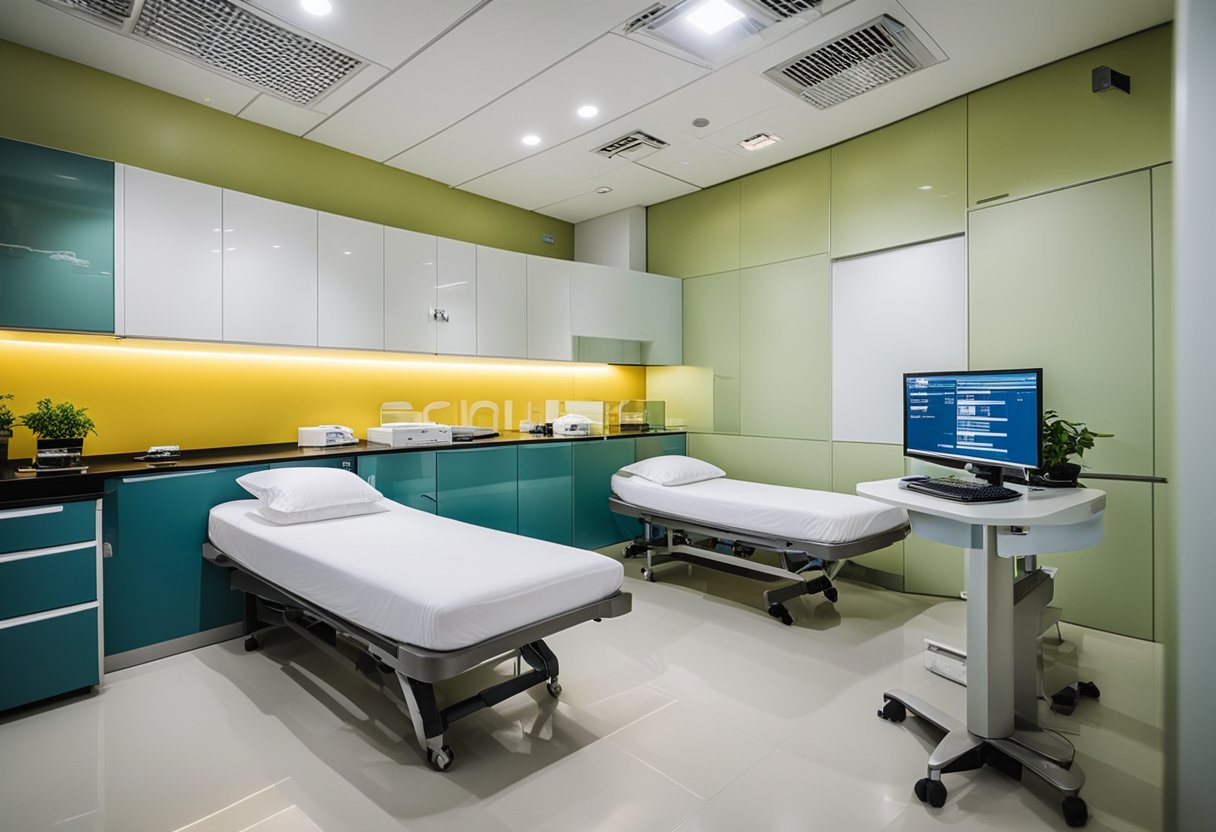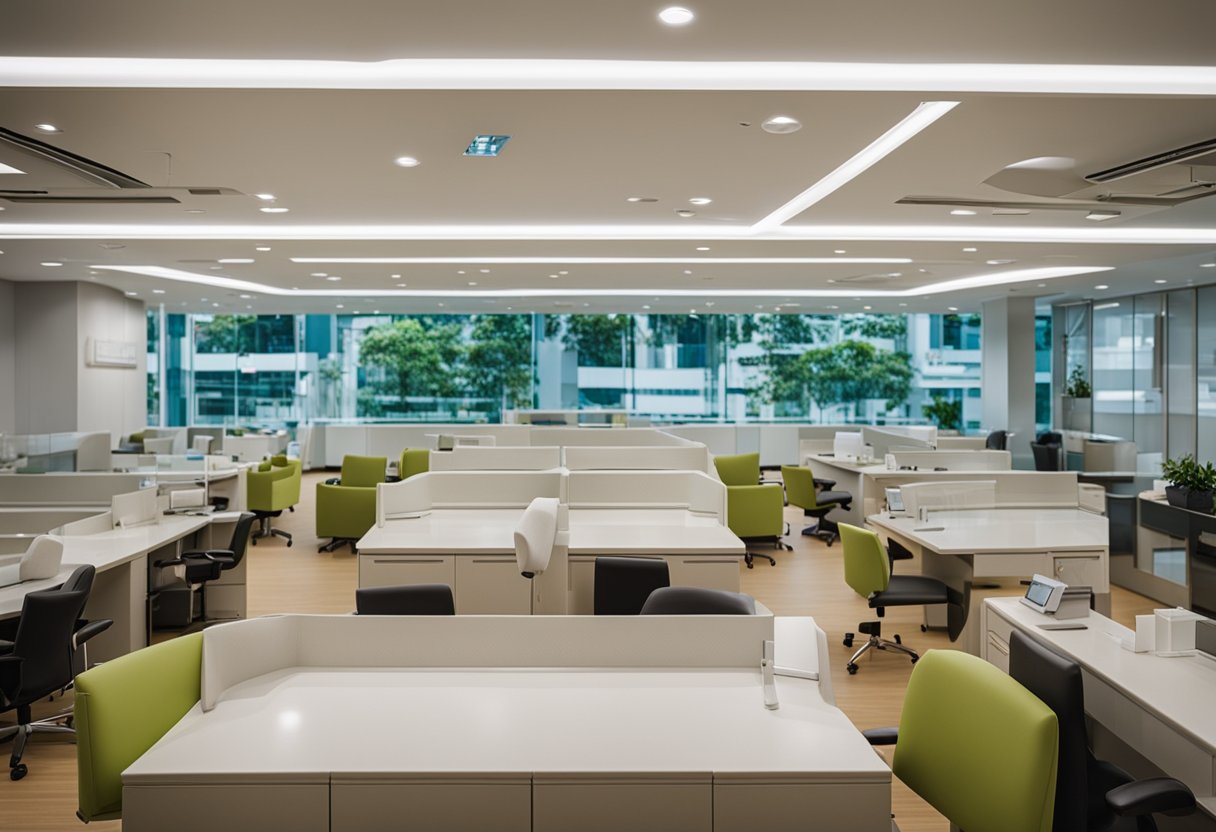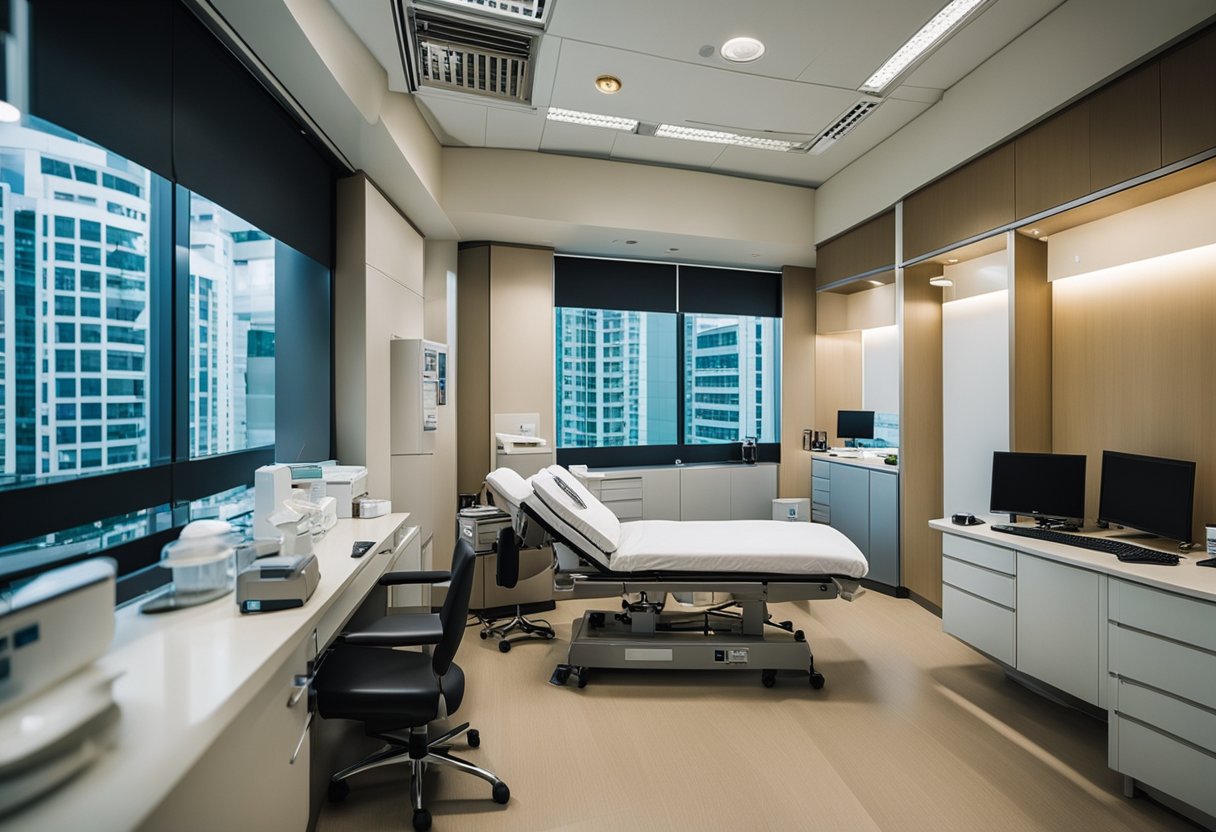Are you struggling with getting a good night’s sleep? Do you often wake up feeling tired and drained, even after a full night’s rest? If so, you may be suffering from a sleep disorder. Luckily, there are many sleep clinics in Singapore that can help diagnose and treat a variety of sleep disorders.

Sleep clinics are medical facilities that specialize in the diagnosis and treatment of sleep disorders. These disorders can range from mild snoring to more serious conditions such as sleep apnea and insomnia. Sleep clinics in Singapore offer a wide range of services, including sleep studies, consultations with sleep specialists, and treatment options such as medication and therapy.
If you’re unsure whether you have a sleep disorder or not, don’t worry. Sleep clinics in Singapore can help answer any questions you may have. They offer consultations with sleep specialists who can help determine if you have a sleep disorder and recommend the best course of treatment. With the help of a sleep clinic, you can finally get the good night’s sleep you deserve.
Key Takeaways
- Sleep clinics in Singapore offer a wide range of services to diagnose and treat sleep disorders.
- Sleep specialists can help determine if you have a sleep disorder and recommend the best course of treatment.
- With the help of a sleep clinic, you can finally get the good night’s sleep you deserve.
Understanding Sleep Disorders

If you are experiencing difficulty falling asleep or staying asleep, you may be suffering from a sleep disorder. Sleep disorders can affect your overall health and well-being, and it is important to seek treatment if you suspect you have one. In this section, we will explore the most common sleep disorders, their symptoms and diagnosis, effects, treatment and management, and sleep clinics in Singapore.
Common Sleep Disorders
There are several types of sleep disorders, including insomnia, sleep apnea, parasomnias, narcolepsy, and sleepwalking. Insomnia is the most common sleep disorder, characterized by difficulty falling asleep or staying asleep. Sleep apnea is a condition where breathing repeatedly stops and starts during sleep. Parasomnias are abnormal behaviors that occur during sleep, such as sleepwalking. Narcolepsy is a neurological disorder that causes excessive daytime sleepiness and sudden attacks of sleep.
Symptoms and Diagnosis
The symptoms of sleep disorders vary depending on the type of disorder. Common symptoms include excessive daytime sleepiness, snoring, restless sleep, and difficulty falling asleep or staying asleep. A diagnosis is typically made through a sleep study, such as a polysomnogram or multiple sleep latency test. These tests monitor brain waves, eye movements, and muscle activity during sleep to determine if a sleep disorder is present.
Effects of Sleep Disorders
Sleep disorders can have a significant impact on your health and well-being. They can increase your risk of developing chronic health conditions, such as obesity, diabetes, and heart disease. Sleep disorders can also affect your mental health, leading to depression, anxiety, and irritability.
Special Considerations for Children
Sleep disorders can affect children as well, and it is important to address them early on. Common sleep disorders in children include bedwetting and sleep-disordered breathing. Pediatric sleep clinics specialize in diagnosing and treating sleep disorders in children.
Sleep Disorders in Adults
Sleep disorders can also affect adults, and it is important to seek treatment if you suspect you have one. Snoring is a common sleep disorder in adults, and it can be a sign of sleep apnea. Treatment options for sleep disorders in adults include surgery, oral appliances, and CPAP therapy. Behavioral modifications can also be effective in treating sleep disorders.
Treatment and Management
Treatment for sleep disorders depends on the type and severity of the disorder. Treatment options include medication, surgery, oral appliance therapy, and behavioral modifications. Sleep clinics in Singapore offer a range of services for the evaluation, diagnosis, and treatment of sleep disorders.
Sleep Clinics in Singapore
Singapore has several sleep clinics that offer comprehensive services for the evaluation, diagnosis, and treatment of sleep disorders. The SingHealth Duke-NUS Sleep Centre is dedicated to establishing the best academic and clinical program in sleep medicine and sleep science. The Sleep Centre in SGH is the largest in Singapore with the most comprehensive range of inpatient and outpatient services for the evaluation, treatment, and education of patients with sleep disorders.
Specialists and Healthcare Professionals
Sleep disorders are typically diagnosed and treated by a team of healthcare professionals, including sleep specialists, neurologists, ENT specialists, psychologists, sleep technologists, and nurses.
Cost and Insurance
The cost of treatment for sleep disorders varies depending on the type and severity of the disorder, as well as the treatment options chosen. Insurance coverage for sleep disorders may also vary depending on the policy.
Research and Education
Research and education in sleep medicine and sleep science are ongoing in Singapore. The SingHealth Duke-NUS Sleep Centre is dedicated to advancing the understanding of sleep disorders through research and education.
In conclusion, sleep disorders can have a significant impact on your health and well-being. If you suspect you have a sleep disorder, it is important to seek treatment. Singapore has several sleep clinics that offer comprehensive services for the evaluation, diagnosis, and treatment of sleep disorders.
Frequently Asked Questions

What are the opening hours of the Sleep Centre at SGH?
The Sleep Centre at SGH is open from Monday to Friday, 8:30am to 5:30pm, and on Saturday, 8:30am to 12:30pm. It is closed on Sundays and public holidays.
How much does a sleep test typically cost in Singapore?
The cost of a sleep test in Singapore can vary depending on the type of test and the clinic you choose. On average, a sleep test can cost between SGD 1,000 to SGD 3,000. However, some clinics may offer subsidies or discounts for certain patients, so it’s best to check with the clinic directly.
Can a GP refer me to a sleep clinic?
Yes, a GP can refer you to a sleep clinic in Singapore. In fact, it is recommended that you see a GP first if you are experiencing sleep problems. Your GP can then refer you to a specialist if necessary.
What is the address of the sleep clinic at Sengkang Hospital?
The sleep clinic at Sengkang Hospital is located at 110 Sengkang East Way, Singapore 544886. You can contact them at +65 6930 6000 for more information.
What happens during a sleep study at a clinic?
During a sleep study, you will be asked to spend the night at the clinic where you will be monitored while you sleep. The monitoring will include measuring your brain waves, heart rate, breathing, and oxygen levels. This information will help the doctor diagnose any sleep disorders you may have.
Is sleep study covered by insurance in Singapore?
Yes, sleep study is covered by insurance in Singapore. However, the extent of coverage may vary depending on your insurance plan. It’s best to check with your insurance provider to see what is covered under your plan.




